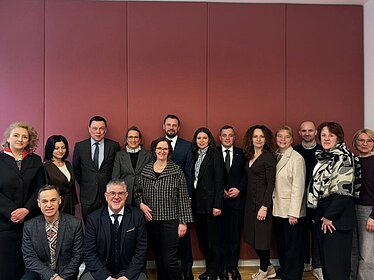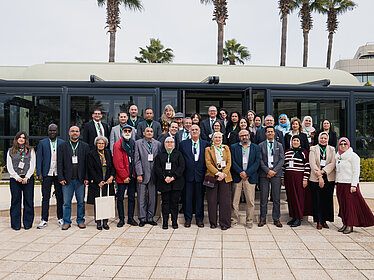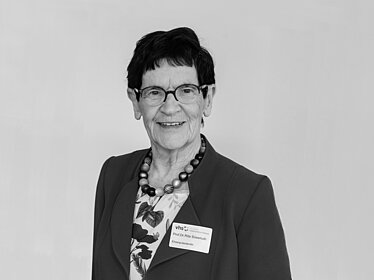
Togo
DVV International has worked in Togo since the end of 2020, managing its activities through the country office in Lomé. The conceptual focus of DVV International in Togo lies on strengthening adult learning and education policy as well as helping to mobilise more resources for adult and non-formal education. The aim is to promote an integrated adult learning and education (ALE) system in the West African country and to support national and regional institutions in recognising the importance of ALE in their policies and practices. DVV International works together with the Ministry of Social Action, Women and Literacy. Tangible measures for the work of DVV International in Togo were defined and coordinated on the basis of an inventory of the national ALE system, carried out hand in hand with important state and civil society actors.
Main focus of work
DVV International is committed to empowering state and civil society actors to take concrete steps to develop and expand essential components of the ALE system. In this endeavour, DVV International sets the following priorities in Togo:
- Strengthening the legal basis for adult learning and education: An ALE political strategy, which is orientated towards the national development plan, has been developed and is currently being implemented. A consultation structure brings together governmental and non-governmental ALE stakeholders to develop and implement joint proposals.
- Promoting ALE centres: Eleven centres across the country are supported through extensive capacity building. This includes further training for teaching staff, networking and lobbying as well as the development of educational programmes and skills assessment procedures.
- Strengthening educational programmes in the selected municipalities: This includes not only functional literacy programmes, especially for women, but also ensuring financial sustainability in the municipalities by establishing ALE funding in municipal budgets.
Partners
The main partner at the macro level is the Ministry of Social Action, Women and Literacy, which encompasses the General Directorate for Literacy and Non-Formal Education (Direction Générale de l'Alphabétisation et l'Education Non-formelle). At the local level, municipal education centres are being set up and expanded on a model basis with a total of eleven municipalities located across all regions of the country.





